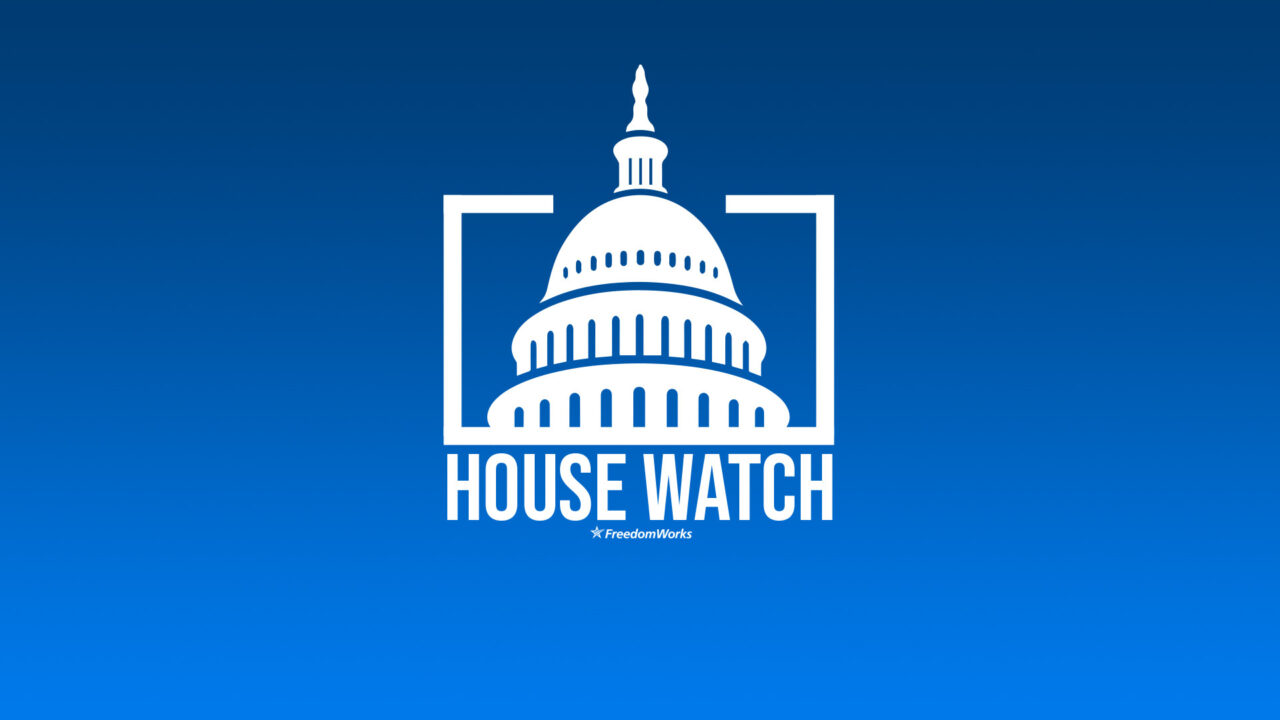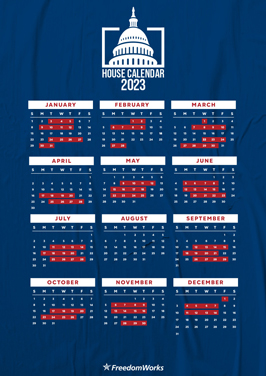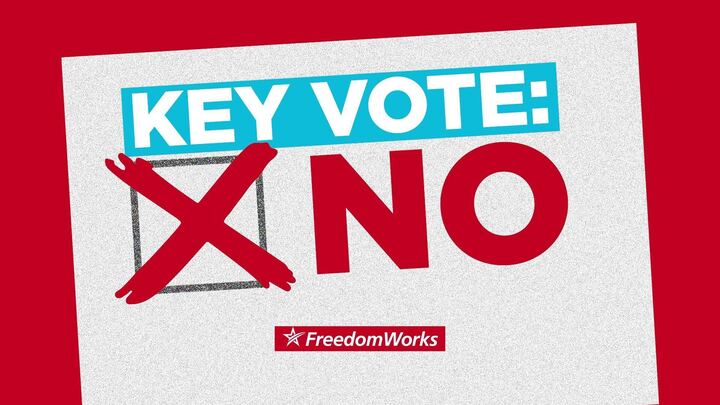House Watch – February 6, 2023

 Welcome to the latest edition of House Watch, where FreedomWorks informs activists and partners on upcoming House votes. The House begins the final week of a three-week work period in D.C. and, once this week concludes, will not return for votes until the week of February 27th. Our next edition will be on Monday, February 27, 2023. This week the House will take up bills on Native American issues, cyber security, COVID vaccine requirements for travelers, and resolutions disapproving laws passed by the Washington, D.C., City Council. The cybersecurity and Indian affairs bills will be considered under suspension of the rules, while the COVID vaccine bill and the two resolutions relating to laws passed in D.C. will be considered pursuant to a rule.
Welcome to the latest edition of House Watch, where FreedomWorks informs activists and partners on upcoming House votes. The House begins the final week of a three-week work period in D.C. and, once this week concludes, will not return for votes until the week of February 27th. Our next edition will be on Monday, February 27, 2023. This week the House will take up bills on Native American issues, cyber security, COVID vaccine requirements for travelers, and resolutions disapproving laws passed by the Washington, D.C., City Council. The cybersecurity and Indian affairs bills will be considered under suspension of the rules, while the COVID vaccine bill and the two resolutions relating to laws passed in D.C. will be considered pursuant to a rule.
Click here to download our U.S. House In-Session Calendar
The Senate is in this week as well and will vote mostly on confirmations.
Below you will find the list of bills that the House is expected to vote on this week.
- Background: The bill was inspired by recent cyber incidents, including the Colonial Pipeline ransomware attack in 2021, which forced the company to shut down operations for nearly a week, causing gas shortages in several states and spikes in fuel prices. Cyberattacks on energy infrastructure reached a record in 2022 with 13 instances alone. Oil and electricity were the most vulnerable infrastructure, followed by gas and shipping.
- This bill would require the Secretary of Energy to provide financial assistance for scholarships, fellowships, and research and development projects at higher education institutions for graduate and postdoctoral students studying cybersecurity in the context of energy infrastructure. The Secretary of Energy would also provide those students with research training at National Laboratories as well as conduct outreach to Historically Black Colleges and Universities (HBCUs) and other institutions that serve minorities.
- Important Info: This bill passed the House last Congress under suspension of the rules. The bill died in the Senate.
- Red flag: This bill expands the size and scope of the Department of Energy.
- Background: The lands that will be placed in trust for the Eastern Band of the Cherokee Indians include the birthplace of Sequoyah, one of the most important Native Americans, as well as other important historical places for the Cherokee Indians.
- This bill would transfer approximately 46.1 acres of federal land currently managed by the Tennessee Valley Authority in eastern Tennessee to a trust managed by the U.S. for the benefit of the Eastern Band of the Cherokee Indians. The bill would also place roughly 20 acres of permanent easements in Monroe County, TN, in a trust for the Eastern Band of Cherokee Indians.
- Important Info: This bill passed the House last Congress with large bipartisan support but died in the Senate.
- Background: The Pala Band—made up of descendants from both Cupeno and Luiseno peoples—have used Chokla as a place to pray and fast since at least 1903, when the U.S. government forcibly moved the Cupeno from their ancestral home in remote northeastern San Diego County to the reservation which already held Luiseno peoples not far south of Temecula.
- This bill would transfer approximately 721.12 acres of land located in San Diego County, CA, to the Pala Band of Mission Indians to be held in trust by the U.S.
- Important Info: This bill passed the House last Congress with large bipartisan support but died in the Senate.
- Background: The Centers for Disease Control (CDC) currently requires that anyone who is not a U.S. citizen, lawful permanent resident, or traveling to the U.S. on an immigrant visa must show proof that they are fully vaccinated from COVID-19 before they travel to the U.S. by air.
- This bill would eliminate the requirement that foreign travelers arriving in the U.S. by air be vaccinated against COVID-19 and prohibits the use of federal funds to enact or enforce a vaccination requirement for those foreign travelers.
- FW View: FreedomWorks supports this bill and has consistently criticized vaccine mandates. Ending another unnecessary mandate is an important step in limiting the overreach of the federal government.
- Background: In November 2022, the D.C. City Council passed the Local Resident Voting Rights Amendment Act of 2022 that would allow green-card holders and illegal aliens the right to vote in local (not federal) races starting in 2024.
- This resolution would express congressional disapproval of the City Council’s measure.
- Important info: Under the District of Columbia Home Rule Act, Congress may pass a joint resolution, within 30 or 60 days, disapproving a law that the D.C. City Council enacted. If the President signs that resolution, the law is not allowed to go into effect.
- FW View: FreedomWorks supports this resolution.
- Background: On January 17, 2023, the D.C. City Council overrode Mayor Muriel Bowser’s (D-DC) veto and enacted the Revised Criminal Code Act of 2022. The bill would eliminate most mandatory minimum sentences, allow for jury trials in almost all misdemeanor cases, and reduce the maximum penalties for offenses such as burglaries, carjackings, and robberies. Law enforcement and court officials had expressed concerns over the bill as well. Even The Washington Post’s Editorial Board opined that the bill would make Washington, D.C. more dangerous.
- This resolution would express that congressional disapproval.
- Important info: Under the District of Columbia Home Rule Act, Congress may pass a joint resolution, within 30 or 60 days, disapproving a law that the D.C. City Council enacted. If the President signs that resolution, the law is not allowed to go into effect.
- FW View: FreedomWorks supports this resolution.
Sign Up for House Watch Alerts
"*" indicates required fields









